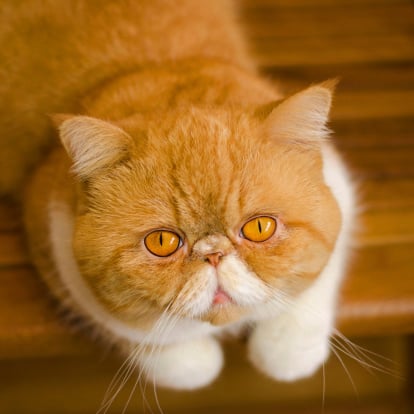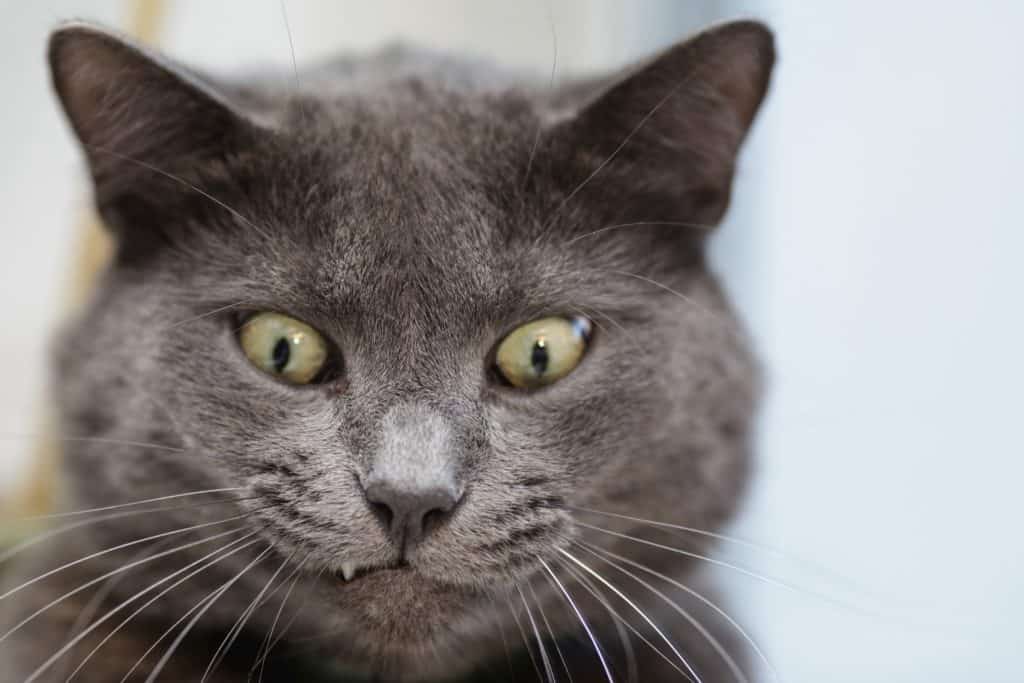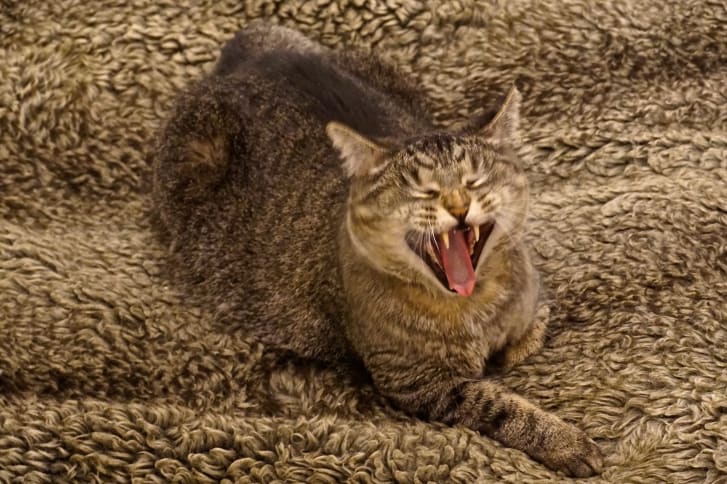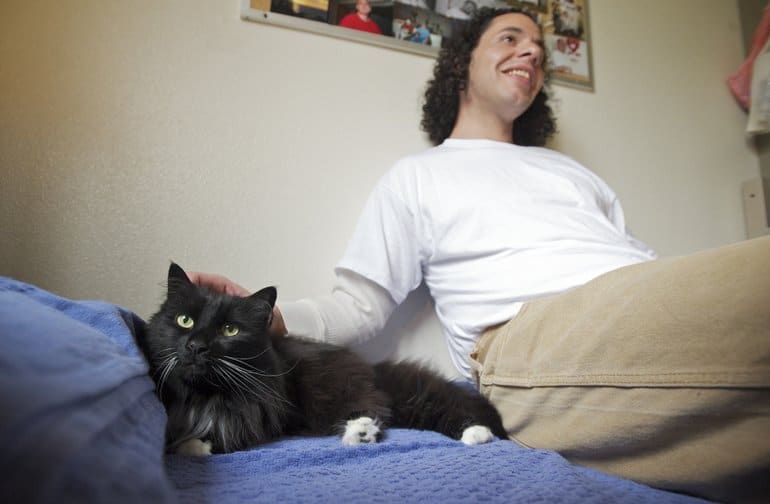Have you ever noticed your cat giving you the cold shoulder when you cuddle a new pet? Or glaring at your laptop as if it’s stealing all the attention meant for them? If you’re nodding along, you’ve probably thought to yourself, “Do cats get jealous?” While your best furry friend’s antics might seem like jealousy, the scientific answer isn’t straightforward.

Cats are known for their mysterious behavior, and what we interpret as jealousy could stem from other factors. This article dives into the concept of cat jealousy, its potential causes, and how to manage it.
Understanding Cat Behavior
To understand if cats can get jealous, we first need to dig into a few key behaviors of our feline friends—behaviors that we might be interpreting as jealousy…
1. Territoriality
Cats are naturally territorial creatures. They see their home—and everything in it—as their domain. That includes you! If something disrupts their space, like a new pet or even a strange-smelling object, it could lead to possessive or defensive behavior.
2. Social Hierarchy
While cats aren’t pack animals like dogs, they still form social structures in multi-cat households. One cat might establish dominance, which could trigger conflict when that hierarchy is challenged.
3. Resource Guarding
Cats can be fiercely possessive of resources they deem theirs, such as food, toys, or even your attention. If they feel something or someone is encroaching on their “stuff,” they may act out.
Cats aren’t necessarily trying to be difficult (that behavior is reserved for us humans). These behaviors are hardwired in their biology But does all this add up to jealousy?
Do Cats Get Jealous?
This is where things get tricky. Jealousy, as humans experience it, is an emotional cocktail of insecurity and envy. But do cats share these complex feelings? Let’s see what the research says.
Science Speaks
Scientific research on jealousy in animals provides mixed answers. Studies suggest certain animals, like dogs, may exhibit behaviors associated with jealousy. However, cats are still relatively under-studied in this area. Instead, what we interpret as jealousy might be simpler instincts like competition or territoriality.
Alternative Explanations
If your cat has been acting out, its most likely not true jealousy. Here are some alternative explanations for their behavior:
- Competition for Resources: Cats may act out if they feel there isn’t enough food, attention, or space to go around.
- Territoriality: A new pet or person in the household could make your cat feel their space is being invaded.
- Redirected Aggression: Stress from an unrelated situation (like loud noises or seeing another animal through the window) might cause your cat to “lash out” at someone or something nearby.
While cats may not “feel” jealousy as we do, their actions can certainly look a lot like it.

Signs of Potential “Cat Jealousy”
If your cat is acting like a tiny furry drama queen, here are a few telltale signs your feline friend is feeling competitive for your attention—or plotting their next move to assert dominance. First up, aggression. If your cat suddenly decides that your new pet, partner, or even your innocent throw pillows are their mortal enemies, that’s a big red flag. Next, sulking—because of course, the silent treatment is a classic cat move. They may withdraw and avoid their usual cuddle sessions, leaving you wondering what you did wrong.
Other clues to watch for? Excessive vocalization. This isn’t their normal “feed me now” meow—it’s a whole production featuring hissing, growling, and possibly some dramatic wailing for good measure. And then there’s the destructive behavior. Scratching furniture, knocking stuff off shelves—it’s all in the repertoire. And keep an eye on their eating and toileting habits. Skipping meals or using your favorite rug as a bathroom means something’s up. If any of this sounds familiar, it might be time to investigate what’s behind your cat’s Oscar-worthy antics and make them feel like the star they are (because obviously, they are).
Managing “Cat Jealousy”
The good news is that you can take steps to prevent those behaviors that resemble a jealous kitty. Here’s how to keep your cat feeling safe, loved, and stress-free.
1. Give Equal Attention
If you’ve got multiple cats or added a new furry buddy to the mix, make sure each one gets their own special “you” time. Whether it’s playtime, belly rubs (if they’re into that), or a snuggle session, giving each cat some solo attention can work wonders. It’s like telling them, “Hey, you’re my favorite”—but, you know, saying it to all of them equally so no one gets their whiskers in a twist.
2. Create Separate Feeding & Resting Areas
Make sure each cat has their own feeding station, cozy sleeping spot, and—yes, the holy grail—an individual litter box. Cats aren’t big on sharing when it comes to the important stuff. And here’s a pro tip straight from the Cat Code of Ethics: you’ll need one litter box per cat, plus one extra. A little extra effort on this front means fewer turf wars and happier cats all around!
3. Introduce New Pets Slowly
Start slow and steady when bringing a new pet into your home. Keep the newbie in their own room at first. Then, let the cats get a whiff of each other through the door (because sniffing is basically the feline version of a handshake). Over time, you can step up to supervised meet-and-greets where everyone’s on their best behavior. Toss in some treats or toys to keep things positive and fun, so they can bond over snacks and playtime!

4. Use Positive Reinforcement
Help your cat get on their best behavior by rewarding them for staying calm and cool. If your kitty acts chill around new people or pets, whip out the treats, give them a little praise (yes, cats can appreciate compliments—well, maybe), or toss them their favorite toy for a quick play session. It’s like saying, “Hey, good job not being a drama queen!”
5. Consult a Professional
If your cat’s behavior escalates into severe aggression or destructive habits, seek help from a veterinarian or a certified animal behaviorist. They can assess your cat’s specific needs and recommend tailored solutions.
Helping Cats Thrive in Balanced Environments
Cats may not experience jealousy as we do, but their behaviors often reflect deeper needs for security and stability. By understanding and addressing the root causes of these behaviors, you can help your feline friends feel more comfortable and loved.
Remember, a little effort goes a long way in building a happy home for everyone—cats included.
And who knows? Maybe your cat’s side-eye at your new houseplant is less about jealousy and more about their highly refined taste in home décor.
The Catington Post is reader-supported. That means, if you make a purchase through links on our site, we may earn an affiliate commission. All images and names which are not the property of The Catington Post are the property of their respective owners.




